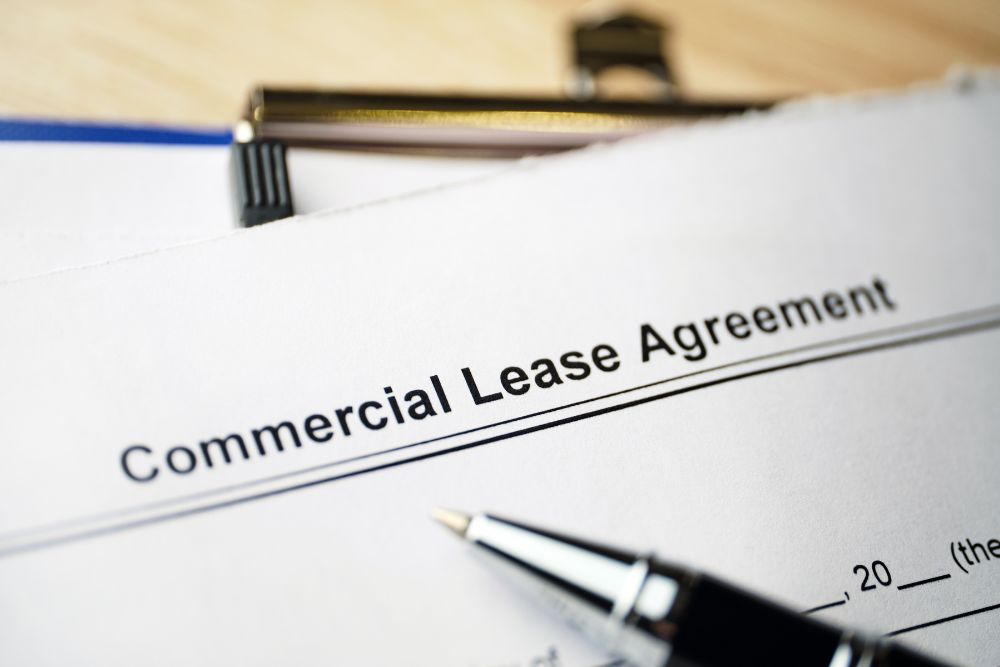NEWS POST
Lease Clauses That May Affect A Business Sale
Protect your future: What to know in your commercial lease agreement
Written by: Joe Jetland, Senior Associate-Advisory

When making real estate decisions, it has always been important to consider your long-term strategy and the future of your organization. Market conditions and the increased cost of construction have led to longer and longer lease terms, often five or more years. Understanding your space needs five years from now is important—but just as critical is considering how today’s real estate lease contracts could impact the future sale of your business and your overall exit strategy.
The most recent census data shows that 53% of Minnesota business owners are 55 years old or older, which means that in the next 5-10 years, these owners will be likely consider a succession plan. Each business and its owner are unique in their goals, but it’s critical to understand potential pitfalls that could complicate a business sale or harm the value of your business. Given the work Forte does with many business owners, we wanted to share some common lease agreement clauses and real estate decisions that could impact your options to exit the business.
Lease assignment language: It’s fine print that matters
Lease assignment language, which specifies who the lease can be transferred to without landlord approval, directly covers how a change in business ownership impacts the lease. This is probably the most important language that could affect the potential sale of the business and your business exit plans.
With lease assignment language, our recommendation is to keep the permitted assignment as broad as possible. Limiting factors such as internal or external transfers of ownership, material change in stock ownership, and financial/credit requirements on the buyer can allow the landlord to step in and potentially delay a transaction. Adding broad permitted transfers language will allow business owners the best chance of a landlord not interfering with a business sale.
In one case, the landlord of an industrial building reviewed the financials of a potential buyer and determined the business’s cash flow had declined due to the debt put on the business from the buyer. That landlord requested additional securitization to offset their perceived enhanced risk, and due to the lease assignment language, the business had to comply.
Another major issue to avoid is landlord recapture rights, which allows the landlord to terminate the lease and recapture the space upon an assignment or sublease request. This means that if a business is sold, and the owner wants to assign the lease to the buyer, the landlord could take the space back and force the company to relocate. Obviously, that situation would be a huge issue for a business. By striking recapture rights, your business can avoid this situation.
Flexibility in term length: Keeping lease options open
A long-term lease can be viewed as a liability to a potential buyer, especially if a likely buyer wants to consolidate your business into their own operations.
On the other hand, a lease with limited term left and no renewal options can also be considered a liability, even more if the business has substantial specialized interior improvements, making the cost to move significant. By securing renewal rights in the lease, the business has a home to operate long-term.
It’s also always a best practice to seek arbitration rights on the renewal to ensure the ability to hold the landlord accountable on their renewal rates. Depending on your market, and the type of real estate you occupy, seeking a termination option can help with that flexibility. A termination option will come with a cost; in tighter industrial markets, it may be more difficult to obtain (likely only available on long-term transactions of seven or more years). But for many businesses, the flexibility for an exit ramp out of a long-term lease is worth the cost.
By understanding your business, its industry, and likely potential buyers can help you determine which choice makes the most sense for your business.
Restoration, repair and maintenance: Avoid unexpected costs
When your business is ready to move out of your existing space, your lease will dictate the condition the space needs to be in a the end of the lease term. Landlords may require the tenant to pay to restore a space to its previous condition before their occupancy. In one example, the business had to bring the space back to its original blank shell – an expensive mistake. This clause could also require demolition, removal of cabling, or removal of flooring.
Tenants can be hit with major bills for the replacement of roofs, parking lots, and HVAC equipment. All of this can add up to a large, unexpected cost at the end of a lease term or potentially at the time of a business sale. Getting lease language in place that limits any required space restoration and amortization language on capital improvements can help limit the potential exposure to the business and business owners.
Dig deeper to protect your business’s space
Whether or not your business may consider a sale in the near or long term, it is worth your time to understand the potential impact of some of this language may have on your business and how it could impact your business exit strategy. This is not an all-encompassing list, but some of the major clauses to consider when negotiating a lease.
Business sales can be frustrating, emotional, and complex transactions. The last thing you want to add into the mix is a landlord complicating the transaction further. Even if there are no plans to sell the business, the more flexibility you can work into your lease language in the first place the better you can be positioned if the day arrives when a business exit is considered.
I’d be remiss if I didn’t suggest that by hiring a Forte advisor you can mitigate those potential pitfalls.
Real Estate Advisory

News & Updates
Expert Q&A-How Companies Can Prepare For the Next Downturn
NEWS POSTQ&A-How Companies Can Prepare for the Next DownturnNavigating Real Estate in an Uncertain EconomyExpert Q & A with Forte Leadership-Jim Jetland, SIOR-principal; Steve Brown, CCIM-principal, Phil Simonet-principal, and Paul Donovan-COOForte’s...
Steve Brown Honored with One World Surgery’s 2025 Spirit of Service Award
NEWS POSTSteve Brown Honored with One World Surgery’s 2025 Spirit of Service AwardSteve Brown, principal – Forte Real Estate Partners, was honored at One World Surgery's (OWS) Minnesota Gala presented by Summit Orthopedics on November 1 for his commitment to...
Get to Know Forte: 11 Questions with Paul Donovan
NEWS POSTGet to Know Forte: 11 Questions with Paul Donovan Meet the people behind Forte! We asked fun and insightful questions to commercial real estate expert Paul Donovan. It’s a quick way to get to know the Forte team—passionate,...



